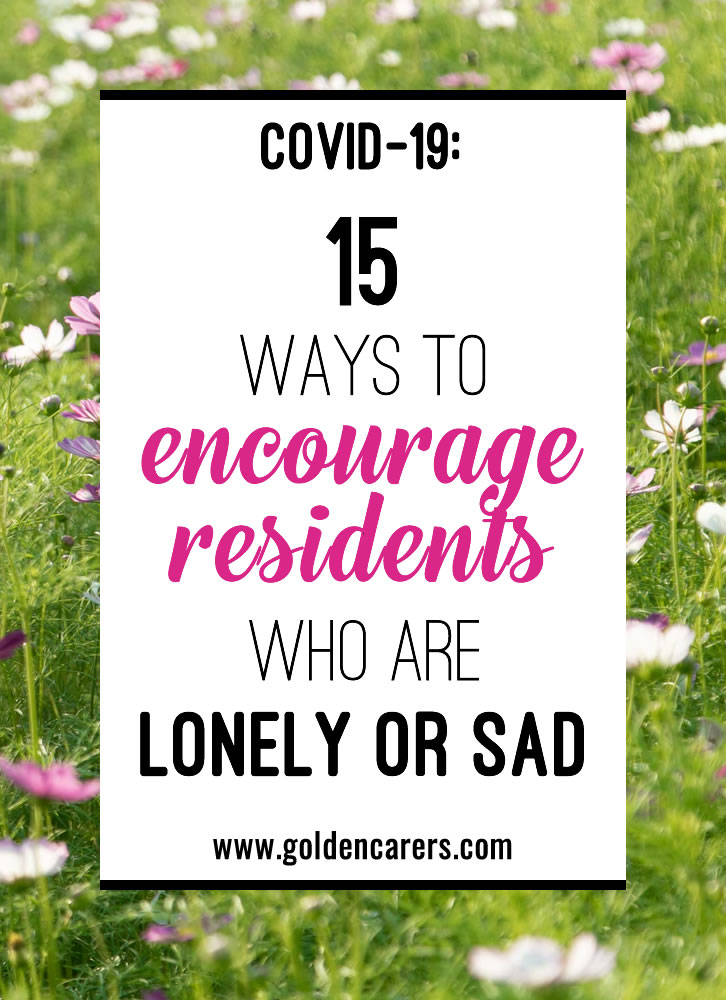
15 Ways To Encourage Residents Who Are Lonely or Sad
Found In: ›Activities ›Coronavirus: Covid-19 ›Articles

Residents can feel lonely and isolated, whether or not they are in the midst of a global pandemic. Here are a few ways you can validate those feelings of loneliness and find new ways to connect with residents who are feeling alone.
In this article we cover:
- Health Complications Due to Loneliness
- Why Could Seniors Feel Lonely?
- 15 Solutions to Loneliness
Related Activities
Comments Post a Comment

 1st Aug 2021
Project Officer
1st Aug 2021
Project Officer
 1st Aug 2021
1st Aug 2021
 9th Feb 2021
Caregiver
9th Feb 2021
Caregiver
 13th Feb 2021
13th Feb 2021


 11th May 2020
Activity Director
11th May 2020
Activity Director
Here are some suggestions you might be able to use
https://www.goldencarers.com/bunker-bingo/6374/
https://www.goldencarers.com/19-ways-for-residents-to-socialize-in-isolation/6335/
Make sure to read the comments because there’s some good information there
Good luck to you I know you’re doing a great job and it’s not easy
 10th May 2020
Activity Director
10th May 2020
Activity Director
outdoor space being utilized and microphones so people on their balconies can participate.
1/1 or groups of 2 or 3 is the way to go and meets accreditation requirement to personalize programs. It should not be about large groups.

 9th May 2020
Activity Director
9th May 2020
Activity Director
Thank you for this information
It is good to know what some facilities are doing
Thanks again for sharing


 8th May 2020
Activity Director
8th May 2020
Activity Director
It is greatly appreciated
I am glad we will be able to help you
 8th May 2020
Retired
8th May 2020
Retired
Well done. This is so needed in out senior community.
 8th May 2020
Personal Assistant
8th May 2020
Personal Assistant

 25 Ways to Show Gratitude To Volunteers
25 Ways to Show Gratitude To Volunteers
 7 Ways To Celebrate International Day of Friendship
7 Ways To Celebrate International Day of Friendship
 Sun-catcher Hearts
Sun-catcher Hearts
 13 Fun Brain Activities for Seniors
13 Fun Brain Activities for Seniors

